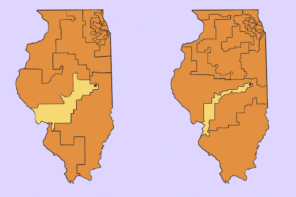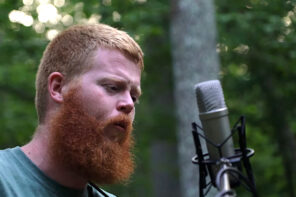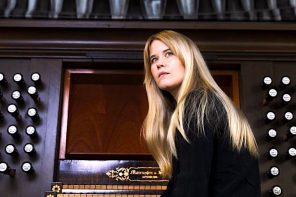At its simplest level, the purpose of this article is to invite you to listen to a song I’ve written, which intersects with other writing I’ve done for Religion Dispatches. I would like to believe that you won’t be sorry. If I’m wrong, you can always click ahead to something else. If I’m correct that the song is worth circulating more widely than among the few dozen friends who might hear me play it face-to-face, then this essay is a way to jump-start the process.
Let me explain why it makes sense to invite you in this way, on this forum. Although the song does relate in some ways to Obama’s recent election, its themes and purposes are broader. My catalyst for writing it was a request from my aunt to sing “The Star-Spangled Banner” on the Fourth of July—in fact, to sing this song loudly and publicly, while sitting in a canoe in a Wisconsin lake, for a group of people lighting fireworks on the lake shore. I was not prepared to grant my aunt’s request, since this song strikes me as hardwired to the right and I associate fireworks with dropping bombs on Vietnam.
But we did debate whether there is any such thing as a patriotic song that does not feel like a gesture of support for Republican policies, and our debate planted a seed. Going against my usual habit—which is to play songs like Bob Dylan’s “Masters of War” and the Clash’s “Know Your Rights”—I wondered if I could write a patriotic song that I could sing without bitter irony, which did not feel like support for war and corporate greed.
Readers who follow scholarly debates about US religion may be interested to know that the earliest version of my song was born two weeks later, on the same day that I re-read Jeffrey Stout’s, Democracy and Tradition. In many ways the song builds upon, or even restates, core arguments by Stout—who takes a more philosophically ambitious route over similar ground as Cornel West’s Democracy Matters.
Both authors approach struggles for greater democracy in US history in a way that promotes peace between religious critics on one side who feel that celebrating American democracy represents idolatry, and secularists who want to keep religion out of the public square on the other. Based on their framing of democracy as an open process of deliberation about how we should live, they lobby certain critics on the academic left to shift their emphasis. Rather than attack the narrowness of democratic discourse and the ways it has been used to justify oppression—a task that surely remains appropriate in many cases—they stress defending democracy at its best against its enemies. This essay is not the right place to unpack the details—suffice it to say that if you like the song, you’ll probably like Stout’s and West’s books, and if you like their books you’ll probably like the song.
Does it seem odd that I speak of a song restating the argument of a book that has twice as many footnotes as my song has words? Perhaps this only makes sense to a musician—one who also thinks that Bruce Springsteen was being serious when he said “we learned more from a three-minute record than we ever learned in school.” I labored for years on a four-hundred page book about the emergence of liberation theologies only to find that, when I was finished, I wasn’t sure if this book was any more useful or profound than a handful of songs I wrote about the Christian left in the 1980s.
For better or worse, I have so far managed to resist a zero-sum sum choice between being a scholar and a musician, though battling for tenure nearly squeezed music out of my life. Even now, it is unclear whether there is enough space for it. (For example, does this article really fit in a venue like Religion Dispatches? If so, should it count for anything in my annual productivity report?) I wonder how many other readers—academics, musicians, neither, or both—are like me in having complex, multifaceted selves, only parts of which they can squeeze into the right shape for their job.
So, this is a small experiment in stepping out as a creative artist and scholar at the same time. My song is certainly not the greatest thing that anyone could possibly discover on today’s music scene. But I do hope it will resonate with some listeners—especially in light of the ways it intersects with recent discussions about Obama, wider debates about religion and democracy, and questions about how artistic and scholarly creativity fit together.




